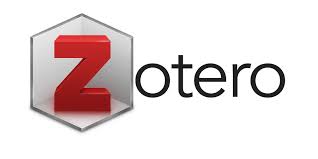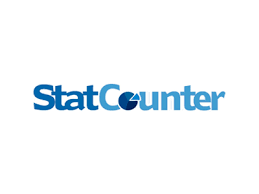Evaluasi Workshop Eksplorasi Software GeoGebra dalam Mengembangkan Kemampuan Pemahaman Konsep Matematis Mahasiswa
DOI:
https://doi.org/10.29240/ja.v5i1.5969Keywords:
Evaluation, Software GeoGebra, Understanding mathematical conceptsAbstract
Abstract mathematical concepts will be easy to understand with learning in the form of visualization and demonstration. GeoGebra software is useful for the learning process of constructing mathematical material through demonstration and visualization and finding solutions to mathematical problems. This GeoGebra Software Exploration Workshop is an activity of the Mathematics Tadris Study Program which aims to help develop students' mathematical abilities. The purpose of this study is to evaluate workshop activities using the Kirkpatrick model. Types of Research Using Descriptive Qualitative research. Data collection techniques using questionnaires, observation, and documentation. The results of the evaluation of the level of participant satisfaction with the workshop activities are very good, as can be seen from the enthusiasm of the participants in participating in the workshop activities. The results of the evaluation of the participants' skills after participating in the activity are quite well demonstrated by the ability of participants to operate GeoGebra Software. In the learning process students have been able to solve mathematical problems and understand concepts using the help of GeoGebra Software media, as well as the impact of changes in students' concept understanding ability to increase and develop rapidly.
Downloads
References
Ekawati, A. (2016). Penggunaan Software GeoGebra dan Microsoft Mathematic dalam Pembelajaran Matematika. Math Didactic: Jurnal Pendidikan matematika, 148-153. Retrieved from https://jurnal.stkipbjm.ac.id/index.php/math/article/view/43
Fitriasari, P. (2017). Pemanfaatan Software GeoGebra dalam Pembelajaran Matematika. Jurnal Pendidikan Matematika RAFA, 57-69. Retrieved from http://jurnal.radenfatah.ac.id/index.php/jpmrafa/article/view/1441
Miranda, C. A., & Nurmitasari, N. (2022). Pengenalan Aplikasi GeoGebra pada Pembelajaran Matematika SMK Muhammadiyah Kotanumi Lampung Utara. Jurnal Indonesia Mengabdi, 12-18. Retrieved from https://tahtamedia.co.id/index.php/jim/article/view/11
Mulyono, B., & Hapizah, H. (2018). Pemahaman Konsep dalam Pembelajaran Matematika. KALAMATIKA, 103-122. Retrieved from https://kalamatika.matematika-uhamka.com/index.php/kmk/article/view/46
Novilanti, F. R., & Suripah, S. (2021). Alternatif Pembelajaran Geometri Berbantuan Software GeoGebra di Masa Pandemi Covid-19. Jurnal Cendekia: Jurnal Pendidikan Matematika, 357-367. Retrieved from https://j-cup.org/index.php/cendekia/article/view/538
Oktaria, M., Alam, A. K., & Sulistiawati. (2016). Penggunaan Media Software GeoGebra untuk Meningkatkan Kemampuan Representasi Matematis Siswa SMP Kela VIII. Kreano, 99-107. Retrieved from https://journal.unnes.ac.id/nju/index.php/kreano/article/view/5014
Putri, D. P. (2017). Model Pembelajaran Concept Attainment dalam Meningkatkan Pemahaman Konsep Matematika. Tatsqif, 97 - 130. Retrieved from https://journal.uinmataram.ac.id/index.php/tatsqif/article/view/18
Rahadyan, A., Hartuti, P. M., & Awaludin, A. A. (2018). Penggunaan Aplikasi GeoGebra dalam Pembelajaran Matematika di Sekolah Menengah Pertama. Jurnal PKM, 11-19. Retrieved from https://journal.lppmunindra.ac.id/index.php/pkm/article/view/2356
Rosyid, A., & Umbara, U. (2018). Implementasi Model Pembelajaran Missouri Mathematics Project Berbantuan GeoGebra Untuk Meningkatkan Kemampuan Komunikasi Matematis Siswa SMP. SJME (Supremum Journal of Mathematics Education), 2(2), 84-89. Retrieved from https://journal.unsika.ac.id/index.php/supremum/article/view/1326
Trianggono, M. (2017). ). Analisis Kausalitas Pemahaman Konsep Dengan Kemampuan Berpikir Kreatif Siswa pada Pemecahan Masalah Fisika. Jurnal Pendidikan Fisika Dan Keilmuan (JPFK), 3(1), 1. Retrieved from http://e-journal.unipma.ac.id/index.php/JPFK/article/view/874
Wigati, S. (2017). Implementasi GeoGebra Dalam HP Android Untuk Meningkatkan Hasil Belajar Siswa Pokok Bahasan Integral Kelas XII IPA 7 SMA Negeri 15 Semarang Tahun Pelajaran 2017 / 2018. Jkpm, 4(2). Retrieved from https://jurnal.unimus.ac.id/index.php/JPMat/article/view/3126
Wrihatnolo, R. R. (2011). Strategi Evaluasi: Pilihab dan Pendekatan. Institute For Development and Policy Study. Retrieved from https://www.academia.edu/41845682/Strategi_Evaluasi_Pilihan_dan_Pendekatan_IDPS_2011_
Yanti, R., Laswadi, Ningsih, F., Putra, A., & Ulandari, N. (2019). Penerapan Pendekatan Saintifik Berbantuan GeoGebra dalam Upaya Meningkatkan Pemahaman Konsep Matematis Siswa. Aksioma, 180-194. Retrieved from https://journal.upgris.ac.id/index.php/aksioma/article/view/4399
Downloads
Published
Issue
Section
Citation Check
License
Authors who publish with ARITHMETIC: Academic Journal of Math agree to the following terms:
- Authors retain copyright and grant the journal right of first publication with the work simultaneously licensed under a Creative Commons Attribution-NonCommercial-ShareAlike 4.0 International License (CC BY-NC-SA 4.0) that allows others to share the work with an acknowledgment of the work's authorship and initial publication in this journal.
- Authors are able to enter into separate, additional contractual arrangements for the non-exclusive distribution of the journal's published version of the work (e.g., post it to an institutional repository or publish it in a book), with an acknowledgment of its initial publication in this journal.
- Authors are permitted and encouraged to post their work online (e.g., in institutional repositories or on their website) prior to and during the submission process, as it can lead to productive exchanges, as well as earlier and greater citation of published work (See The Effect of Open Access).







